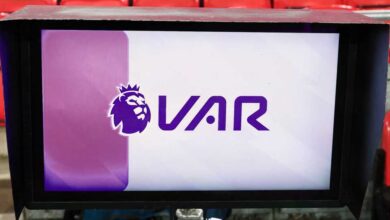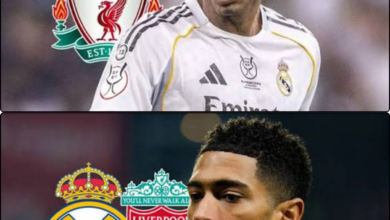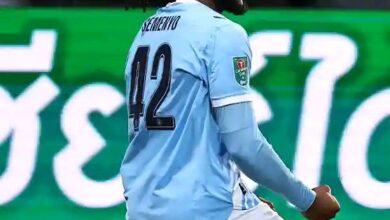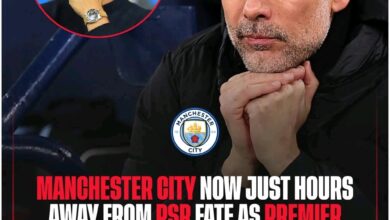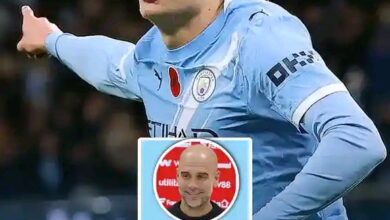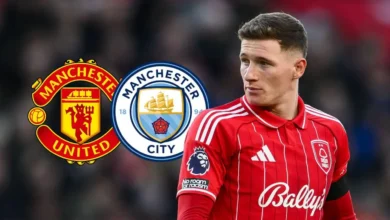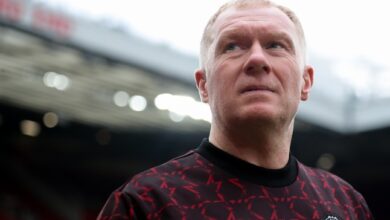Arsenal’s Coaching Crossroads: The Mounting Pressure and Speculation Around Mikel Arteta’s Future

The Emirates Stadium has become a cauldron of tension, expectation, and mounting frustration as Arsenal supporters grapple with another season of near-misses and unfulfilled potential. While Mikel Arteta remains at the helm of the North London club, the growing speculation around his future reflects deeper questions about Arsenal’s direction, ambitions, and ability to compete at the highest level of European football
Arsenal’s transformation under Mikel Arteta has been both remarkable and maddeningly incomplete. Since taking over in December 2019, the Spanish tactician has overseen a fundamental shift in the club’s culture, playing style, and competitive spirit. The team that once seemed rudderless in the final years of Arsène Wenger’s tenure and the turbulent Unai Emery period has evolved into a cohesive, tactically sophisticated unit capable of challenging for major honors.
Yet therein lies the source of growing frustration among Arsenal’s faithful. The club has finished second in the Premier League for three consecutive seasons, accumulating impressive point totals that would have secured titles in previous eras. However, in the era of Pep Guardiola’s Manchester City, these achievements feel hollow, representing the eternal bridesmaid syndrome that has plagued Arsenal for over a decade.
The mathematical reality is stark: Arsenal have come tantalizingly close to glory, only to fall short when it matters most. Each season brings renewed hope, impressive early-season form, and ultimately, the familiar disappointment of watching their title dreams evaporate in the spring months. This cycle of expectation and disappointment has created a powder keg of emotions that now threatens to consume the club’s carefully constructed progress.
Arteta’s tactical acumen is undeniable. His transformation of Arsenal from a defensively fragile team into one of the Premier League’s most organized units represents a masterclass in systematic coaching. The implementation of his possession-based philosophy, combined with aggressive pressing and structured defensive shape, has created a team that is aesthetically pleasing and tactically sound.
However, critics point to persistent issues that have prevented Arsenal from taking the final step toward championship glory. The team’s tendency to drop points from winning positions has become a recurring nightmare, with crucial leads surrendered against inferior opposition. The mentality in high-pressure moments, particularly in away fixtures against direct rivals, continues to raise questions about the team’s championship credentials.
Furthermore, Arsenal’s attacking patterns, while effective against weaker opposition, have often appeared predictable and sterile against well-organized defenses. The over-reliance on individual brilliance from players like Martin Ødegaard and Bukayo Saka, rather than systematic chance creation, has exposed limitations in Arteta’s attacking philosophy when key players are absent or neutralized.
The club’s transfer policy under Arteta and former sporting director Edu Gaspar has been both praised and criticized in equal measure. While successful acquisitions like Ødegaard, Gabriel Magalhães, and William Saliba have transformed the team’s spine, other high-profile signings have failed to deliver the expected impact.
The departure of Edu midway through the current season has added another layer of uncertainty to Arsenal’s operations. The appointment of Andrea Berta as the new sporting director brings promise, but also raises questions about continuity and whether fundamental changes in recruitment philosophy might be necessary to achieve the club’s ambitions.
Arsenal’s reluctance to make significant investments in certain transfer windows, particularly during crucial periods when squad reinforcement was desperately needed, has frustrated supporters who see rival teams strengthening while their club maintains fiscal conservatism. The January transfer window’s lack of activity, despite obvious squad deficiencies, exemplified this cautious approach that many believe has cost Arsenal in their title pursuits.
The modern football landscape offers little patience for sustained mediocrity, even when that “mediocrity” involves consistently finishing as the second-best team in one of the world’s most competitive leagues. Arsenal’s supporters, starved of major silverware since the 2020 FA Cup triumph, have grown increasingly vocal in their demands for tangible progress.
Social media amplifies every tactical decision, team selection, and press conference comment, creating an environment where managers face constant scrutiny and criticism. Arteta, despite his obvious commitment to the club and the respect he commands from players, is not immune to this pressure. Recent polling and betting markets suggest a growing section of the fanbase believes a change in leadership might be necessary to break the cycle of near-misses.
The psychological impact of repeated disappointments cannot be understated. Players who have experienced multiple title race collapses may carry mental scars that affect their performance in crucial moments. This presents a significant challenge for any manager: how to maintain belief and confidence in a squad that has become accustomed to falling short of their ultimate objectives.
Arsenal’s coaching history provides both cautionary tales and inspiration for the current situation. The club’s most successful periods have been defined by stability and long-term vision, with Arsène Wenger’s 22-year tenure representing the gold standard of sustained excellence. However, even Wenger’s final years demonstrated how a once-revolutionary approach can become stale without adaptation and renewal.
The brief tenures of managers like Unai Emery serve as reminders of how quickly situations can deteriorate when results fail to meet expectations. Emery’s dismissal after just 18 months highlighted the unforgiving nature of modern football management, where past achievements offer little protection against current struggles.
Conversely, examples from other clubs demonstrate the value of persistence with talented coaches. Pep Guardiola’s early struggles at Manchester City, Jürgen Klopp’s gradual transformation of Liverpool, and even Sir Alex Ferguson’s difficult initial years at Manchester United all illustrate how patience with the right manager can ultimately yield extraordinary success.
Speculation about potential replacements for Arteta has intensified in recent months, with various candidates emerging in betting markets and media discussions. The names being mentioned reflect different philosophical approaches to the challenges facing Arsenal.
Some suggest that a more experienced, trophy-winning manager might provide the mentality and tactical adjustments needed to cross the finish line. Others argue for continuity with coaches who understand and can build upon the foundation Arteta has established. The challenge lies in identifying a candidate who can both maintain Arsenal’s positive trajectory while adding the final elements necessary for championship success.
However, managerial changes carry inherent risks. New coaches require time to implement their systems, establish relationships with players, and understand the unique pressures of managing Arsenal. The disruption caused by such changes could potentially set back the club’s progress, particularly given the solid foundation currently in place.
Arsenal’s ownership and board face one of the most difficult decisions in modern football management. They must balance the legitimate frustrations of supporters with the reality of their manager’s achievements and potential. Arteta has clearly elevated the club from its post-Wenger malaise, implementing sustainable systems and developing young talent while maintaining competitive relevance.
The financial implications of managerial changes extend beyond compensation packages. New managers often require significant transfer investments to implement their preferred systems, potentially disrupting the club’s carefully managed financial planning. Additionally, the uncertainty created by coaching changes can affect player retention, sponsor relations, and overall institutional stability.
The board must also consider the broader context of Arsenal’s competitors. Manchester City’s dominance, backed by unprecedented financial resources and tactical innovation, has raised the bar for championship success to extraordinary levels. Newcastle United’s emergence as a financial powerhouse, Chelsea’s continued investment despite recent struggles, and the persistent threat of Manchester United’s revival all contribute to an increasingly competitive landscape.
The relationship between Arteta and his squad remains a crucial factor in any decision regarding his future. Public statements from key players consistently express support for the manager’s methods and vision, suggesting strong dressing room unity. However, the private frustrations of players who have experienced repeated disappointments cannot be ignored.
Young talents like Saka and Gabriel Martinelli have developed significantly under Arteta’s guidance, while experienced players like Ødegaard have flourished in their roles as team leaders. This suggests that the coaching methods are effective, even if the ultimate results have been disappointing.
Nevertheless, the psychology of a team that has consistently fallen short raises legitimate questions about whether fresh leadership might unlock different levels of performance. Some players may benefit from new voices, different tactical approaches, or alternative motivational techniques that could help them overcome the mental barriers that have prevented championship success
Modern football operates within complex financial ecosystems where success on the pitch directly impacts commercial revenues, sponsorship deals, and player valuations. Arsenal’s consistent Champions League qualification under Arteta has stabilized the club’s financial position, but the lack of major trophies limits their ability to attract premium sponsors and commercial partners.
The cost of elite players continues to escalate, and Arsenal’s ability to compete in the transfer market depends partly on their perceived trajectory and likelihood of success. A managerial change could either enhance their attractiveness to top-tier talent or create uncertainty that deters potential signings.
Furthermore, the commercial value of stability cannot be underestimated. Brand partnerships, merchandising agreements, and global marketing initiatives all benefit from consistent messaging and predictable club operations. Frequent managerial changes can disrupt these relationships and limit long-term commercial growth.
If Arteta remains in position, the tactical adjustments required to achieve championship success are clear. Arsenal must develop more varied attacking patterns that can unlock disciplined defenses without relying solely on individual brilliance. The team’s set-piece defending, while improved, still occasionally presents vulnerabilities that elite opponents can exploit.
Squad rotation and game management represent another area for improvement. The ability to maintain performance levels when key players are absent or rested will be crucial for sustained success across multiple competitions. Additionally, the development of young players must continue to provide both depth and future potential.
The mental aspect of championship chases requires particular attention. Learning to manage expectations, handle pressure moments, and maintain focus during crucial periods will determine whether Arsenal can finally convert their consistent excellence into tangible silverware
The decision regarding Arteta’s future will influence Arsenal’s trajectory for years to come. A commitment to continuity suggests confidence in the current system and faith that minor adjustments can yield major improvements. Conversely, a change in leadership would signal the board’s belief that fundamental alterations are necessary to achieve the club’s ambitions.
This decision will also affect Arsenal’s appeal to current and potential players. Young talents considering their future will evaluate the club’s commitment to development and success, while established stars will assess whether Arsenal provides the best platform for their career ambitions.
The supporter base, already fragmented in their opinions about the club’s direction, will respond differently to various outcomes. Some will view managerial stability as evidence of proper planning and patience, while others may interpret it as acceptance of mediocrity and lack of ambition.
Arsenal stands at a critical juncture in their modern history. The foundation established under Arteta’s leadership is undeniably solid, with young talent, tactical sophistication, and competitive infrastructure all in place. However, the persistent inability to achieve the ultimate prize raises legitimate questions about whether additional changes are necessary.
The pressure surrounding potential coaching changes reflects the club’s elevated expectations and the supporter base’s justified hunger for success. After years of rebuilding and patient development, Arsenal fans rightfully demand that their investment of time, emotion, and financial support be rewarded with meaningful trophies.
Whether Arteta continues his project or a new voice takes charge, Arsenal’s challenges remain consistent: converting excellent process into championship results, developing mental resilience under pressure, and making the tactical adjustments necessary to compete with the Premier League’s elite. The coming months will determine whether the current leadership can finally deliver on the promise they have spent years building, or whether Arsenal requires fresh perspectives to achieve their long-awaited return to glory.






